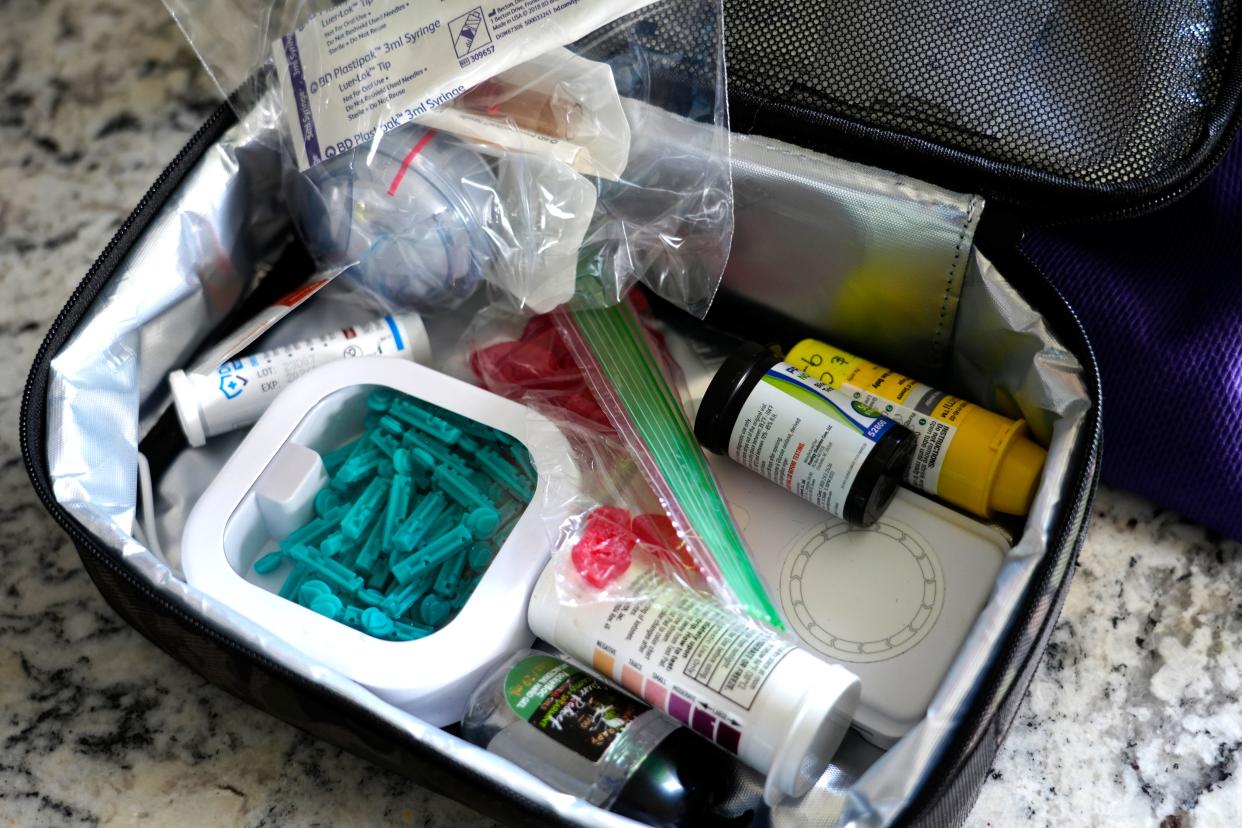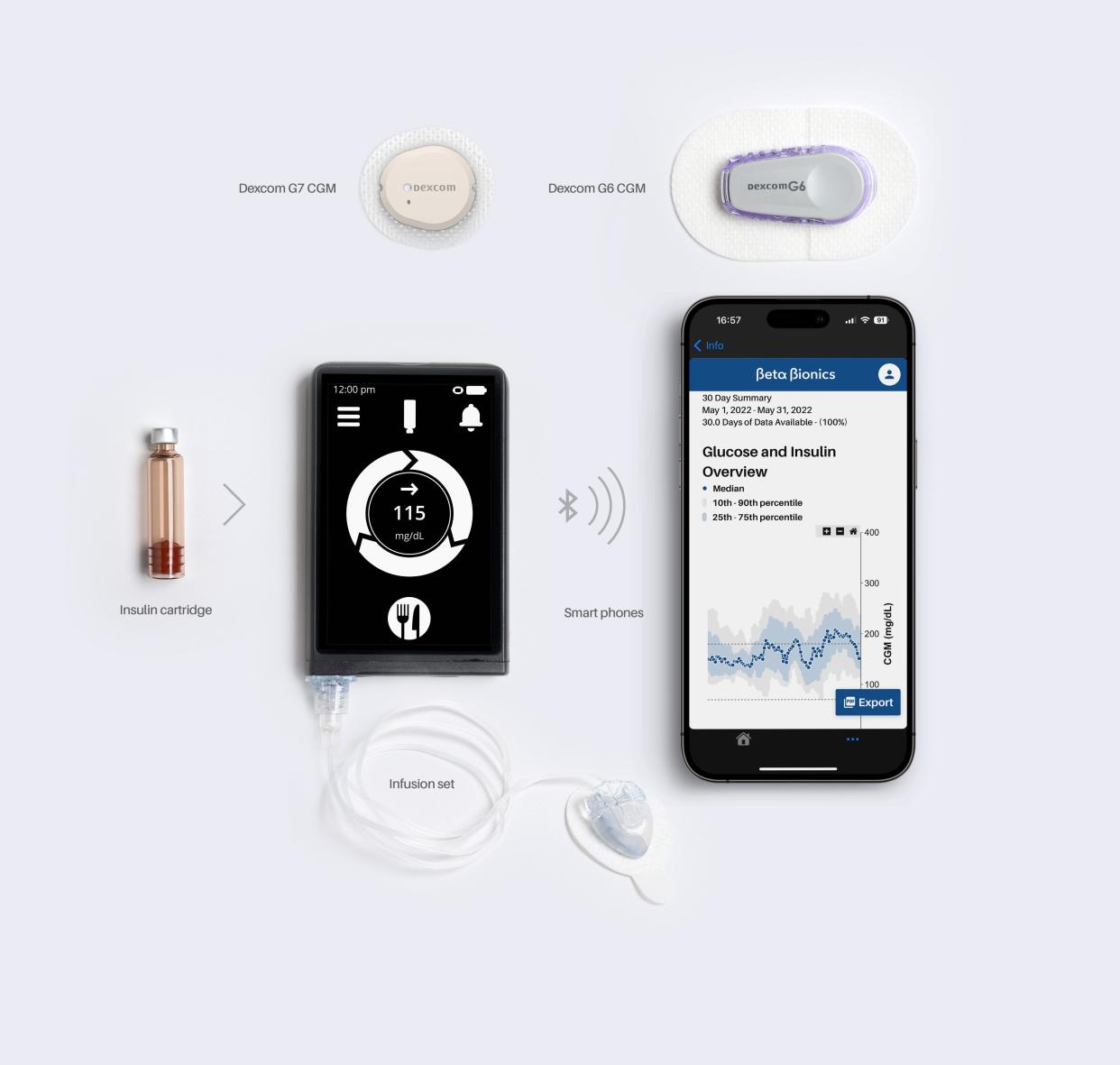Her son needs this insulin pump to survive. The bill? Nearly $14,000
The Enquirer is investigating readers’ medical bills. For our first story, we talked to Ashley Hack, the mom of a 12-year-old with Type 1 diabetes. Do you have a bill you want us to check out? Email it to ekim@enquirer.com.
The situation, in a snapshot
The patient: Trevor Hack, 12, with Type 1 diabetes, covered by his father’s plan through Anthem Blue Cross Blue Shield at the time of the bill.
The medical service/device: The iLet Bionic Pancreas, an insulin pump.
The service provider: CCS, a medical supplies distributor.
The bill: CCS charged $13,934 for the insulin pump and associated supplies. Anthem paid $0.
What happened? Ashley Hack, Trevor’s mom, completed steps for a special exemption and prior authorization, which Anthem said were required for coverage. They denied her bill.
The outcome: After The Enquirer contacted Anthem, the insurance company notified the Hack family saying that their claim had been approved.
The lesson: When insurance denies your claim for a medical device, familiarize yourself with the appeals process. Working together with the medical device company and your doctor to help you file an appeal can help your case.

Before her son got his insulin pump, Ashley Hack lived in intervals of three hours.
Twelve-year-old Trevor has Type 1 diabetes, which meant Hack and her husband had to follow a rigorous daily routine of counting carbs and injecting insulin to keep their son alive.
Using an orange from her kitchen countertop, Hack demonstrated the injections they administered roughly every three hours. She made sure a droplet of insulin formed on the tip of the needle – a process called priming – before sinking it into the orange.
“We used to practice all the time on these,” said Hack, a 39-year-old florist who lives in Blue Ash.

The insulin injections help Trevor process blood sugar, which people with Type 1 diabetes cannot do on their own because their pancreases do not produce insulin. Without insulin, glucose builds up in Trevor’s bloodstream, potentially leading to a life-threatening complication known as diabetic ketoacidosis.
“That’s too much sugar running in your blood for too long,” Hack said. “And you can go into a coma and die.”
Trevor has a continuous glucose monitor that pings his mom’s phone when his blood sugar is too low or too high. Every ping requires some kind of intervention.
Not enough food or water? Too little sleep? Stressed out about a big test at school? Any of those things could throw off his blood sugar and make him sick.
In the months before he got the insulin pump, that meant Trevor had to stay close to home.
Everything changed in December, when medical manufacturer Beta Bionics announced the integration of their iLet Bionic Pancreas – the insulin pump – with Trevor’s Dexcom G7 monitor.
For the first time, Trevor became eligible for an insulin pump, and all the freedom that would come with it.
Mom jumps through hoops to get coverage, only to be denied
But there was one problem: Hack had less than two weeks to get insurance to cover the cost of the insulin pump.
She heard about the iLet Bionic Pancreas in early December, and by the end of the month, the family’s out of pocket maximums would reset. If that happened, Hack feared, the family might be on the hook for much more of the pump’s total cost.
The insurance process she encountered was convoluted. It involved countless calls and emails, and Hack said she received conflicting messages.
At the time, the family was covered by Hack’s husband’s plan with Anthem Blue Cross Blue Shield.
First, Anthem told her the pump was considered out-of-network and that she would need to get their doctor to submit a special exemption form. So, she had Trevor’s doctor, an endocrinologist at Cincinnati Children's Hospital, fill out the form by mid-December.
A few days later, however, another representative from Anthem told Hack that they didn’t need the special exemption but did need a prior authorization from the insurance company before Trevor could get the pump.
In other words, Trevor needed to prove he needed an insulin pump for the insurance company to cover the cost of it.
That angered Hack. “Why does my Type 1 diabetic son need a prior authorization?” she remembered asking herself. “Right there, that's a red flag.”
Still, she obliged. When she called a 1-800 number the Anthem representative had given her, she was told she needed a doctor to help her get prior authorization. She contacted Trevor’s endocrinologist, who told her that it was the responsibility of the pump manufacturer, Beta Bionics, so she forwarded the number to a representative there instead.
Hack said that CCS, the distributor of the insulin pump, assured her that the family wouldn’t be delivered the pump unless their insurance went through. So when she received a tracking number for the pump on Dec. 22, she thought Anthem might have approved her requests for both a special exemption and prior authorization.
It was a shock, then, when the bill arrived in January.
CCS charged $10,760.09 for the pump and $3,173.85 for a three-month supply of the equipment associated with the pump, for a total of $13,933.94.
Anthem Blue Cross Blue Shield paid out $0, saying the pump wasn’t in-network.
Contacting Anthem, Beta Bionics, and CCS yielded little clarity into the bill that she believed would be covered by insurance.
The appeals process that followed was no easier to understand, but Ashley was told CCS would appeal the claim to Anthen first. If CCS was denied, it would be the Hacks’ turn to appeal.
Insulin pump creates a 'world of a difference'
The day after the Hacks got their bill, Trevor was scheduled to learn how to use his new insulin pump.
A Beta Bionics representative would drive from Pittsburgh to Cincinnati to do the training – the pump was so new that Cincinnati Children’s did not yet have anyone on staff who could do so.
Moving forward with the training was nerve-wracking. “We were thinking, like, should we maybe not do this? Are we going to get charged?” Hack said.
In the end, they decided to proceed – Hack knew the pump had a 90-day trial period and that the insurance appeals process would take 30 days.
The shift to the pump was like “night and day,” according to Hack. “I have noticed a world of a difference in in his mood,” Hack said. “And in mine too.”

The pump is a smartphone-like device that fits into Trevor’s hand. He can easily stow it away in his hoodie's pocket, and it connects to his body via a fine plastic tube with a needle at the end of it.
The settings are simple: Trevor inputs whether he had breakfast, lunch or dinner, and whether he ate more, less, or his usual amount. The pump’s algorithm does the rest, automatically dosing him every five minutes.
In lieu of multiple daily injections, Trevor switches out a cartridge of 180 units of insulin every three days. His parents don’t have to count his carbs anymore, either.
“Now, I'm like, you can go to your friend’s house. Go. It’s fine.” Hack said. “It gives him more freedom.”
Anthem covers $14K bill after Enquirer involvement
The Enquirer reached out to Anthem Blue Cross Blue Shield and CCS to ask why the Hacks’ bill was denied and to check on the status of their appeal.
Michael Perry, public relations director of Anthem Blue Cross and Blue Shield of Ohio, responded with the following:
“Trevor’s family received notification that the issue is now resolved, and their claims are approved,” said Perry. “While we processed these claims correctly within coverage guidelines, we understand the confusion the family experienced. We sincerely apologize for the concerns this caused.”
Perry did not provide a reason for why the family’s claim initially was denied.
Campbell Hutton, vice president of regulatory and health policy at the Juvenile Diabetes Research Foundation, said that while there is significant variability in the cost of insulin pumps, the bill the Hacks initially received was higher than usual.
“From what we hear from the community, people with commercial health insurance typically pay anywhere between $100 to $200 for an insulin pump and supplies per month,” Hutton said. “That amount would be challenging for many, if not most families, to face.”
Hack understands how overwhelming the insurance process can be to families.
“I just fear that most people would just take the box and give it back,” she said. “This pump is new. It’s scary already. You don’t want to add a $13,000 bill to that.”
However, she wants to tell parents in her position not to give up when it pertains to medical care their child needs. Hack encourages them to recruit help from others – for her, communicating with Trevor’s doctor and CCS made the process a little easier.
“It's very easy just to say I don't even want to do this. It's too much hassle.” Hack said. “That’s what I'm thinking insurance companies want you to do. They want you to quit.”
“This would be my message: Fight.”
Have a medical bill you want The Enquirer to investigate? Fill out this form to let us know. This was inspired by the Bill of the Month series, a joint investigation from KFF Health News and NPR.
This article originally appeared on Cincinnati Enquirer: Insurer billed $14,000 for an insulin pump even with exemption
